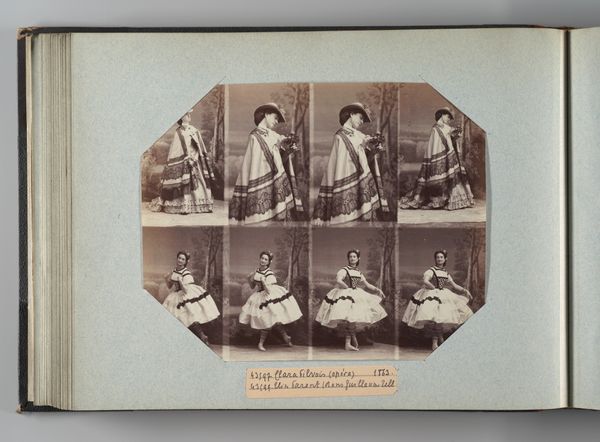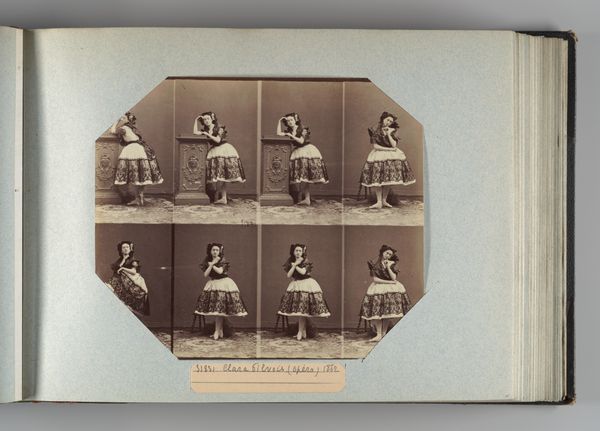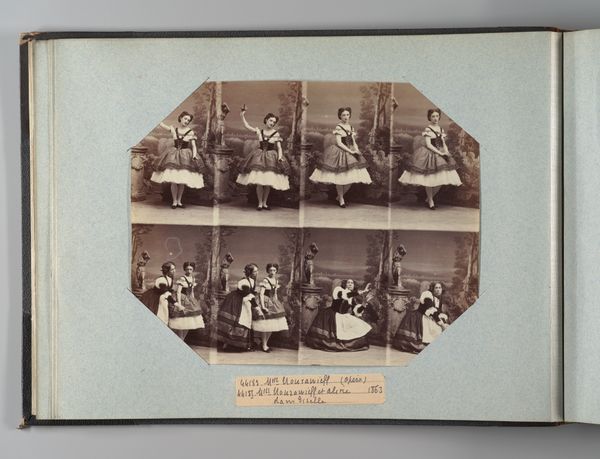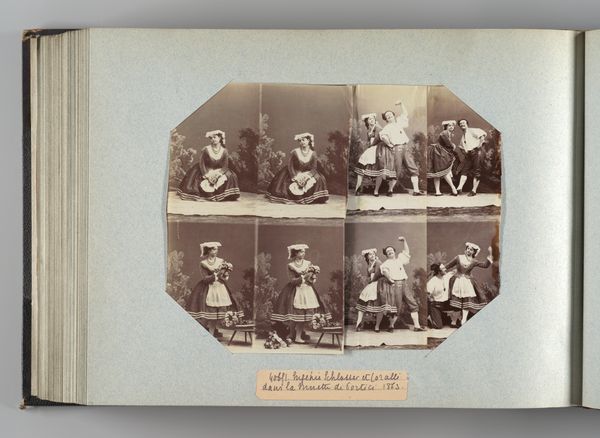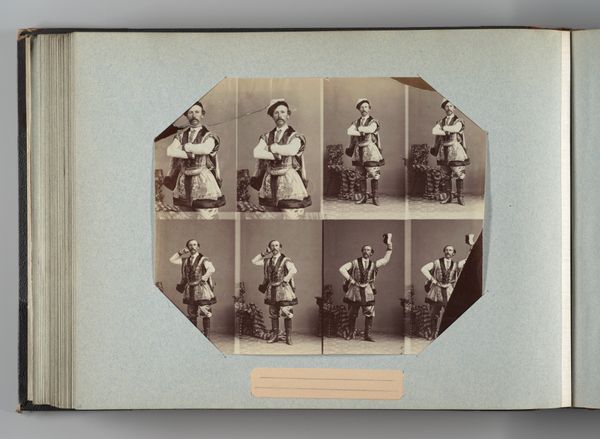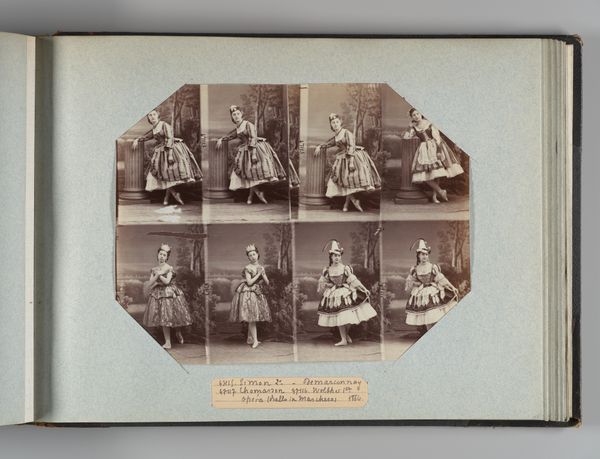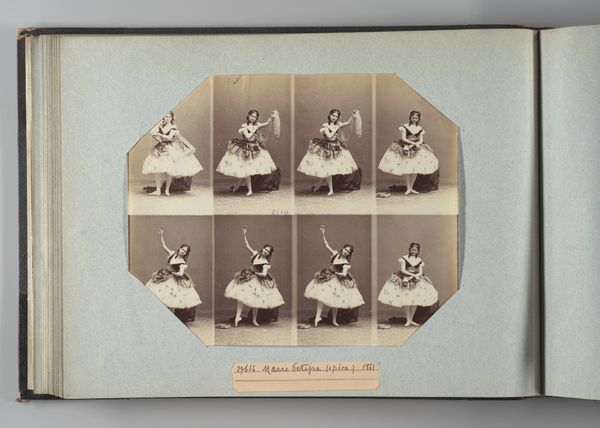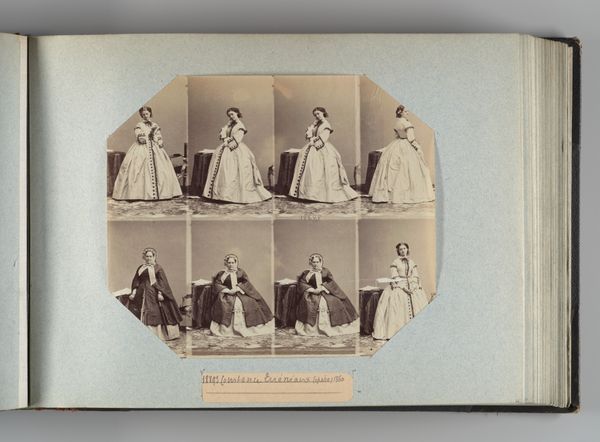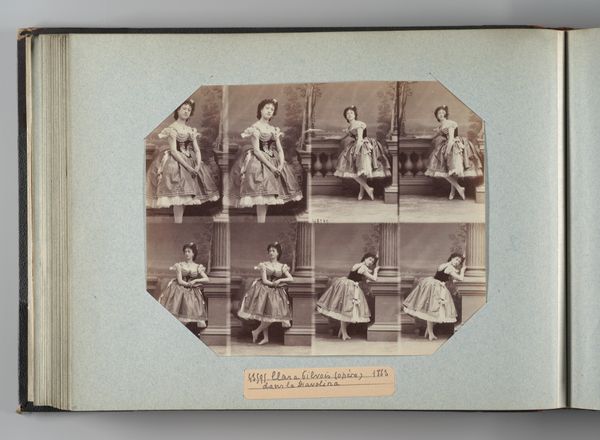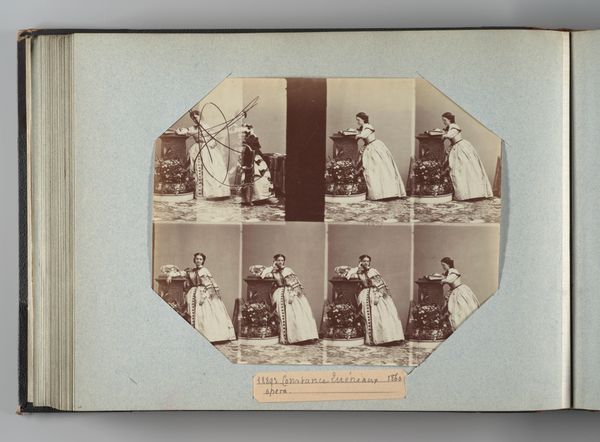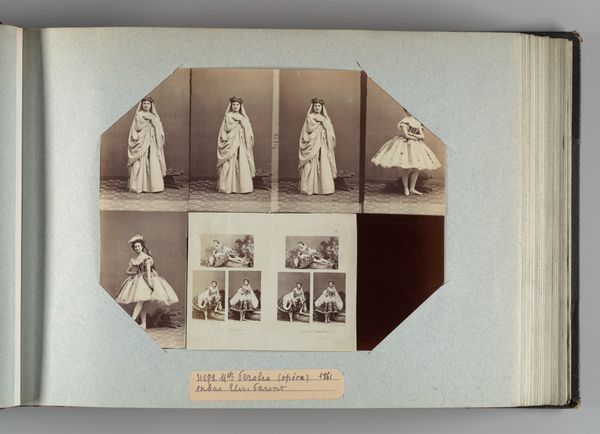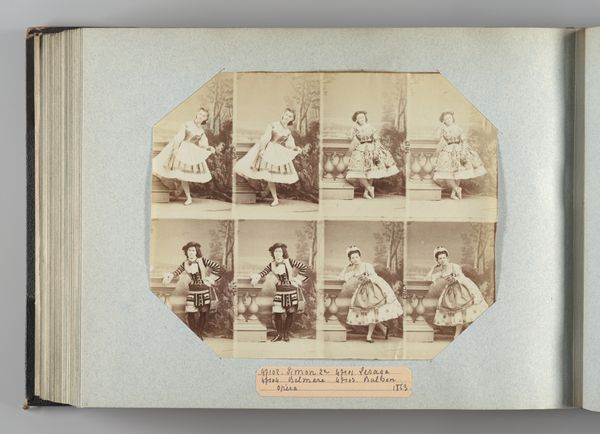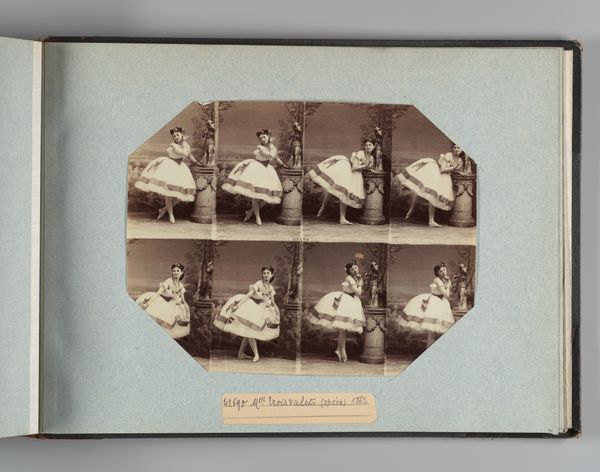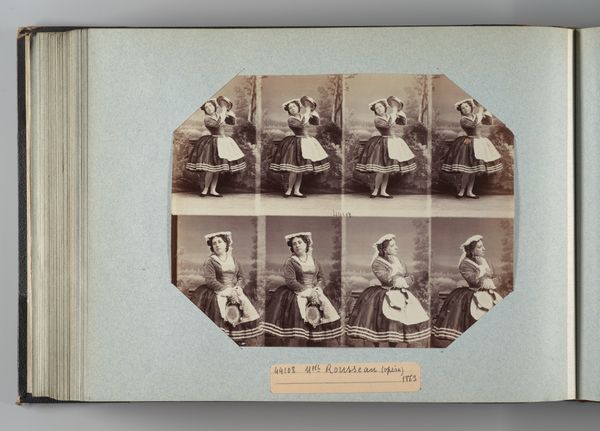
photography
#
portrait
#
photography
Dimensions: Image: 7 3/8 × 9 1/4 in. (18.8 × 23.5 cm) Album page: 10 3/8 × 13 3/4 in. (26.3 × 35 cm)
Copyright: Public Domain
André-Adolphe-Eugène Disdéri captured Clara Pilvois using the innovative carte-de-visite format around 1862. Disdéri patented this technique, which allowed for multiple poses to be captured on a single plate, drastically reducing the cost of portraiture. This democratization of image-making coincided with a rising middle class eager to participate in visual culture. In this staged photograph, Pilvois's identity as a woman of means is carefully constructed. Her elaborate gown, styled hair, and the neoclassical props that surround her speak to a performance of femininity and status. The multiple exposures offer a narrative, yet each pose remains static, reinforcing the controlled and idealized representation of women in the 19th century. While Disdéri's invention opened doors for broader access to photography, consider the ways in which it also standardized representations, reinforcing societal norms around gender, class, and identity. The image evokes a sense of both access and constraint, reflecting the complex social dynamics of the era.
Comments
No comments
Be the first to comment and join the conversation on the ultimate creative platform.
